Review: AN EVENING WITH ARI AXELROD Presents a Portrait of the Artist as a Young Man at Birdland
Ari Axelrod Brings a Confessional Evening to Birdland
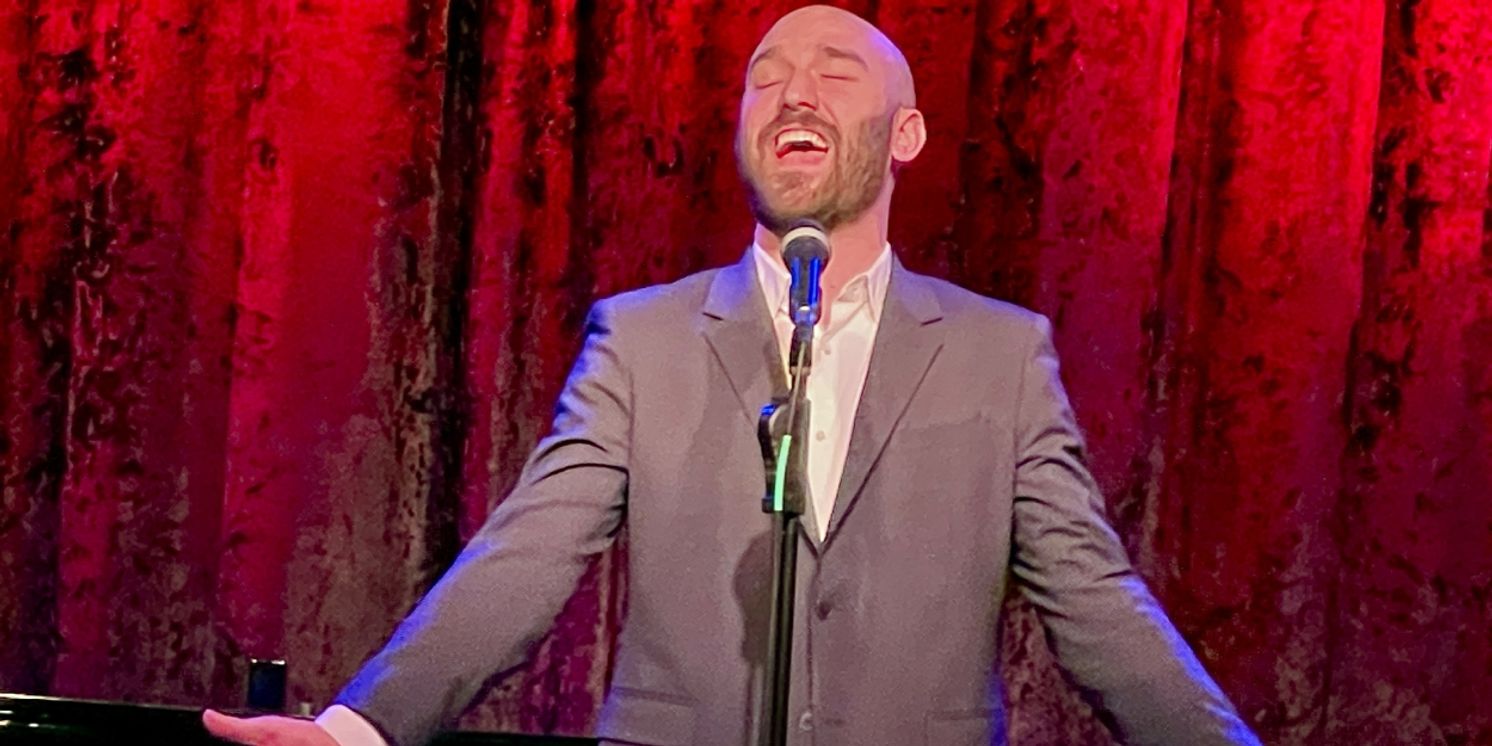
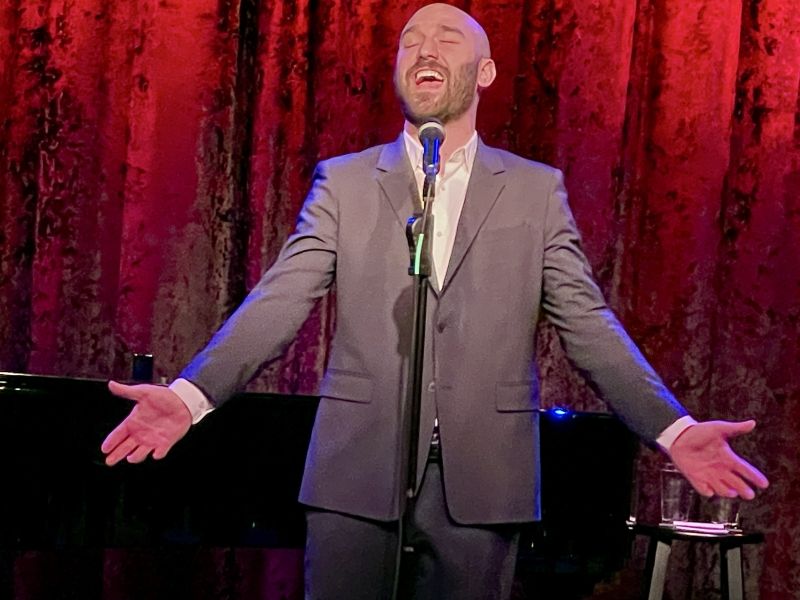 If you were asked to describe yourself in 14 songs, what would they be? That is the challenge that singer Ari Axelrod set for himself in his show which opened at Birdland last night entitled simply enough, An Evening With Ari Axelrod. What emerged from that question is a portrait of an artist who is intelligent, sensitive, somewhat anxious, and remarkably contemplative for someone just on the cusp of 30.
If you were asked to describe yourself in 14 songs, what would they be? That is the challenge that singer Ari Axelrod set for himself in his show which opened at Birdland last night entitled simply enough, An Evening With Ari Axelrod. What emerged from that question is a portrait of an artist who is intelligent, sensitive, somewhat anxious, and remarkably contemplative for someone just on the cusp of 30.
Mr Axelrod said early on that a better title for his show might be “Self Portrait.” There is a lot of truth in that. He then proceeded to reveal the colors and brushstrokes that have made his life so far a work of art. With a little help from his director, cabaret stalwart, Jeff Harnar, and his musical director, Lawrence Yurman, Axelrod created quite a confessional canvas. It is, of course, the goal of every cabaret artist to reveal himself to his audience, but rarely have I seen it done with such singularity of purpose. In his opening number, Ed Kleban’s “Self Portrait,” he sang “I Want You to Know Me.” And that is what he did. He presented musical vignette after musical vignette of the colors of his life with no attempt to neatly sum up the package. I daresay every audience member came away with a different image of exactly who Ari Axelrod is.
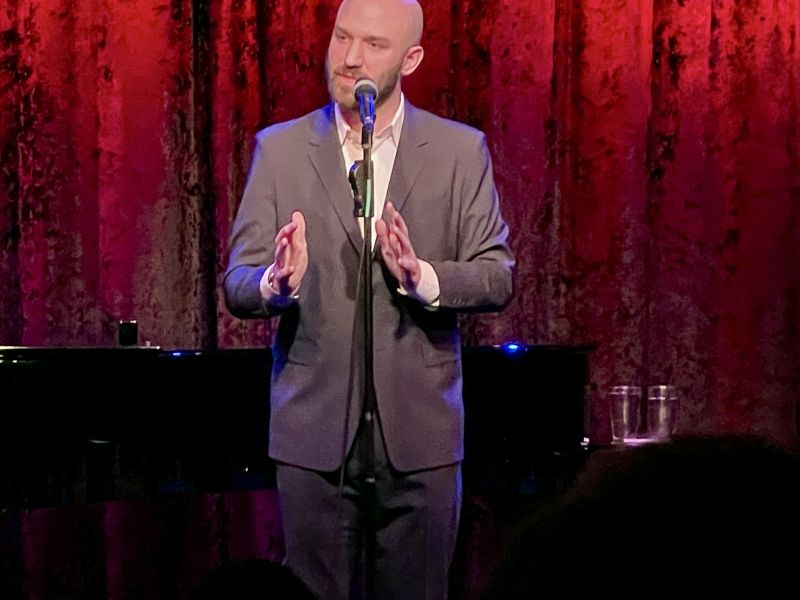
Birdland is perhaps an odd venue for Mr Axelrod’s existential show. He is not a jazz artist. His comfort zone is modern musical theatre, and he is quite good at it. He is a tenor with a good deal of emotional range. He often has an ethereal quality reminiscent of a more down-to-earth version of Mandy Patinkin. But he is a chanteur whose style is all his own. He has the ability to live inside an emotion and simultaneously be analytical about it. It is a delicate tightrope to walk. There were times I wanted him to turn his brain off and just fly. When he did, it was dazzling.
Of course, the brain was one of the themes of the evening. His best story was about having to undergo brain surgery for a condition in which his brain was literally too large for his head. He told the tale of this life-altering event using music by Adam Guettel and William Finn. It is the kind of life event that can’t help but alter one’s perspective on everything.
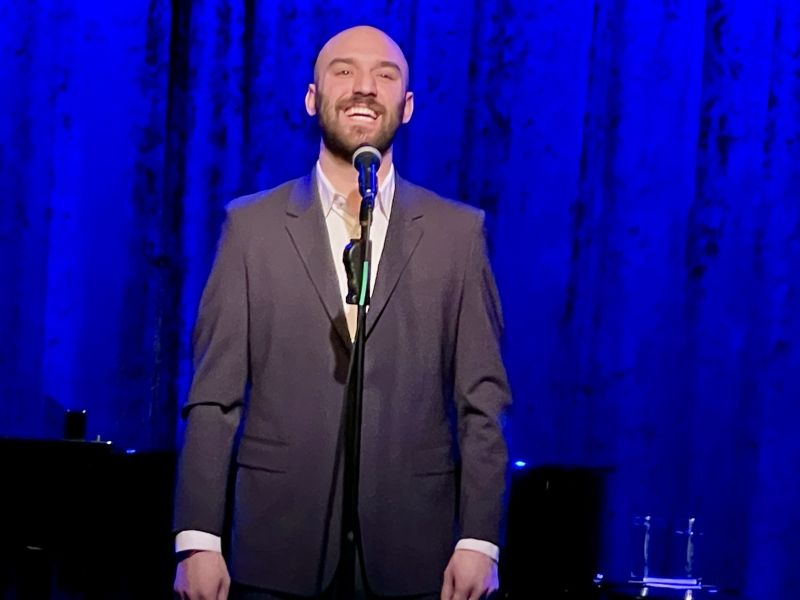
But before this big set piece, he began with songs about identity and being confused by one’s place in the world. Jeanine Tesori’s “Who I’d Be” is about trying on different personas for size. Bock and Harnick’s “Miracle of Miracles” is all about the people you meet on the way. Stephen Schwartz’s “Corner of the Sky” is practically the unofficial anthem of all young men searching for a path in life, and Craig Carnelia’s “Flight” is about wanting to do something notable in the world. As a quartet of songs, they paint a picture of the decade of the 20s when everyone is forming the personality that will carry them through the rest of life’s challenges and rewards.
After the story of his brain surgery, Axelrod embarked on a unit about those who live outside societal expectations. He was particularly good at navigating Sondheim’s tongue-twister, “Everybody Says Don’t.” One of the highlights of the evening was a very sensitive rendition of “Vincent,” Don McLean’s ode to Van Gogh, one of society’s most notable outsiders. It was a beautifully sung, vulnerable moment of theatre.
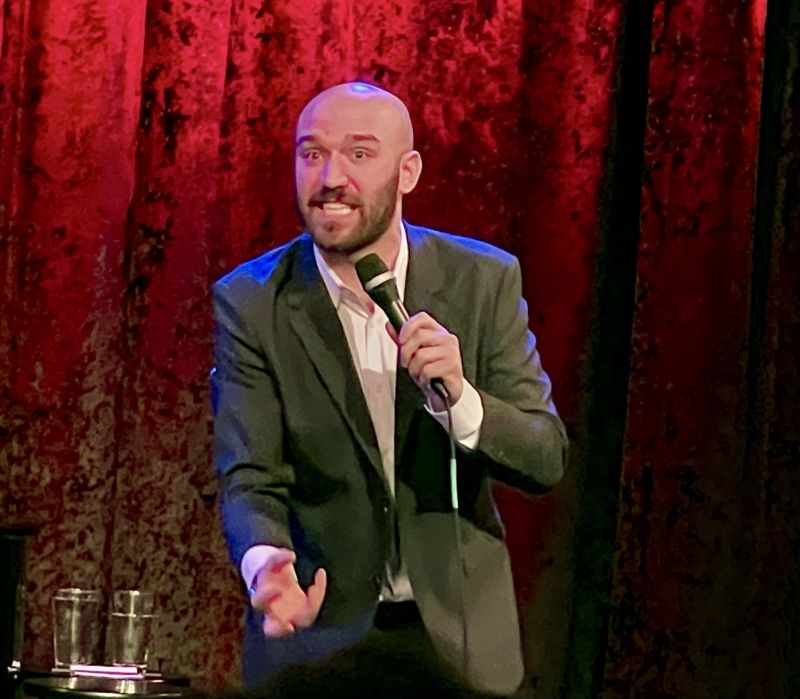
We were next treated to a group of songs about dating and connection…or the lack of it. Jason Robert Brown’s “Shiksa Goddess” captures the anxious energy of connecting with someone unfamiliar. Lizzy Alpine’s “Pancakes for Dinner” is about the discoveries one makes while falling in love. Carole King’s “Will You Still Love Me Tomorrow?” is about intimacy's transformative and irreversible effects. And finally, “End of the World” by Matt Alber is a plea for the kind of love that requires jumping off a cliff.
The last section of Axelrod’s concert was a response to the tragic events of October 7th in Israel. Kurt Weill’s “Lost in the Stars” paints a portrait of a crisis of faith. Rodgers & Hammerstein’s “You’ve Got to Be Carefully Taught" and Stephen Sondheim’s “Children Will Listen" are about the messages we pass on to future generations. Flaherty & Ahrens’ “Make Them Hear You” is about standing for right and justice, a fight that may outlast one’s own lifetime.
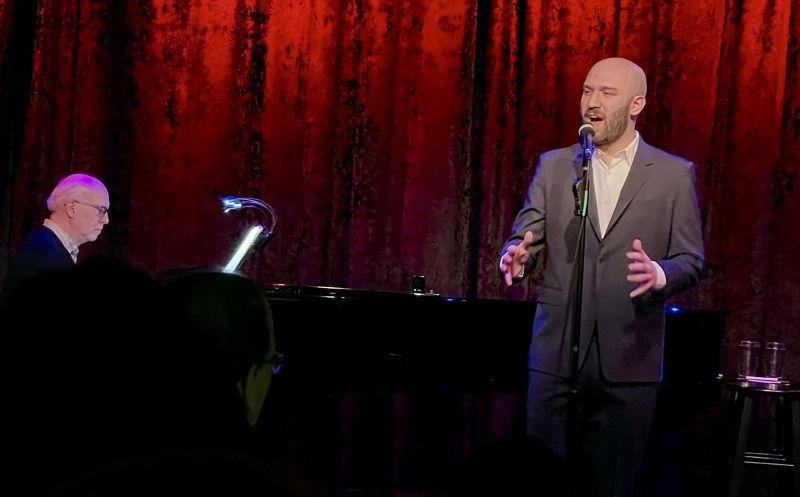
This show with so much imagery about making one’s life a work of art, in fact, ended with a work about a painting. Stephen Sondheim’s “Sunday” is about what we leave behind when we are gone. It paints a portrait of one perfect instant, preserved for eternity. Ari Axelrod reminded us that life, in the end, is about creating things of beauty in imperfect circumstances. That is not a bad way to spend a cold January evening.
For more about Ari Axlerod, visit his website, ariaxelrod.com, or follow him @ariaxelrod on Instagram. For tickets to other great shows at Birdland go to birdlandjazz.com.
Reader Reviews
Videos

